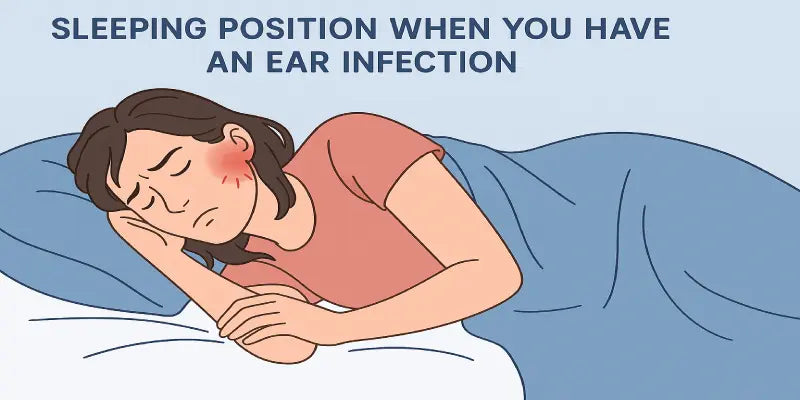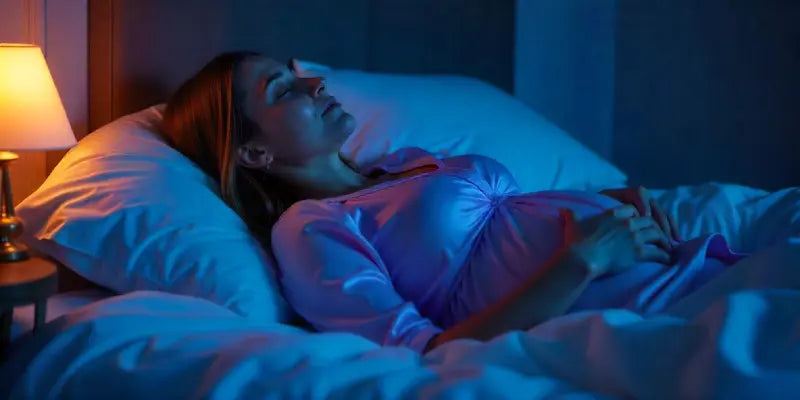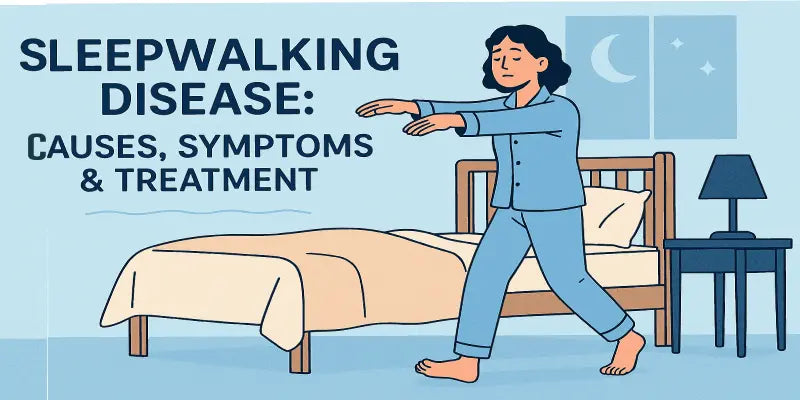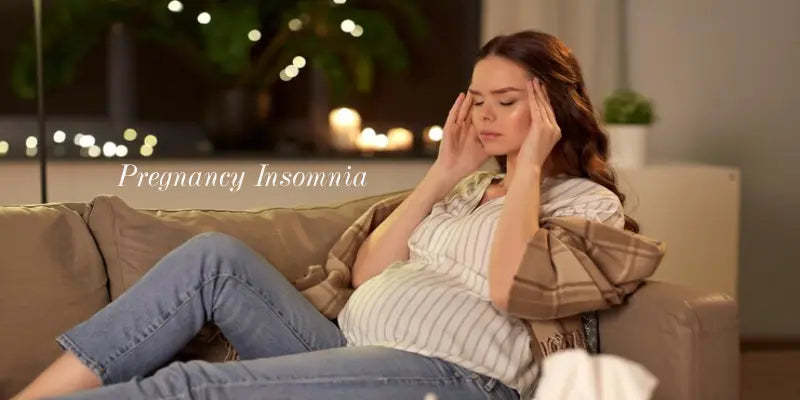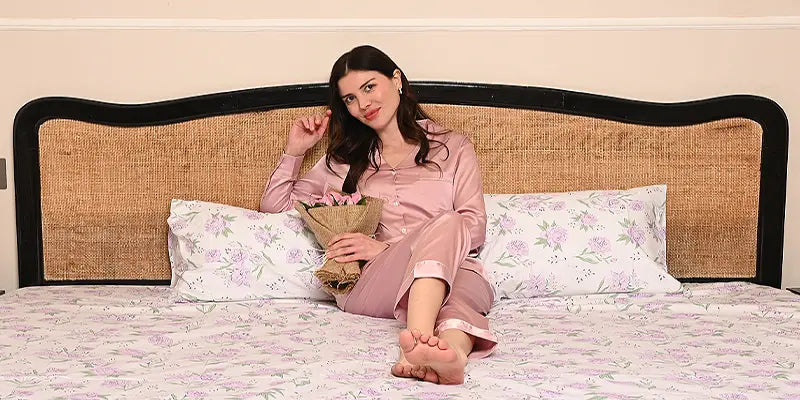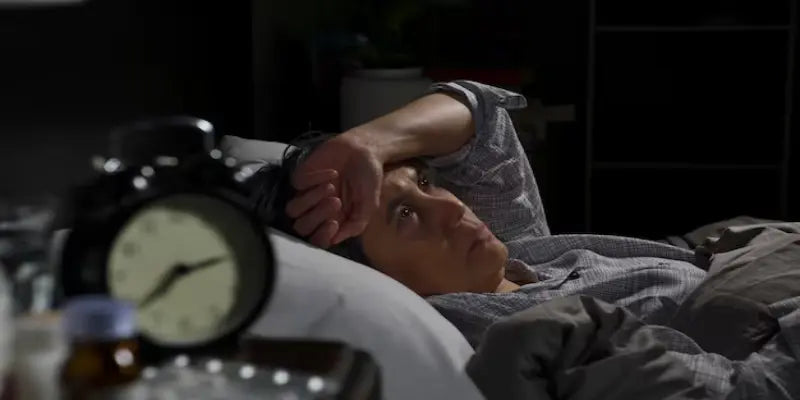
Sleep Deprivation: Symptoms, Stages, Effects & Treatment
Sleep deprivation has become an all-too-common issue, whether it’s due to work stress, late-night social media scrolling, or simply a busy lifestyle. But did you know that consistently missing out on quality sleep can affect your health in profound ways?
India is one of the most sleep-deprived countries in the world. According to a survey, 93% of Indians experience sleep deprivation or disorders, and 34% have sleep apnea. Lack of sleep can have serious long-term effects, such as a higher chance of auto accidents, workplace mistakes, heart issues, weakened immune systems, obesity, a lower quality of life, and an early death.
In this blog, we’ll discuss what is sleep deprivation, symptoms of sleep deprivation, the stages of sleep deprivation, the side effects of sleep deprivation and what are the treatment options for sleep deprivation.
What is Sleep Deprivation?
Sleep deprivation occurs when you don’t get enough sleep to feel rested and function properly during the day. As many as one-third of us do not get enough sleep at night, whether owing to stress, worry, excessive work, family or social obligations, or the presence of a sleep problem, such as insomnia. And the problem appears to be getting worse.
Most of us have experienced what it's like to wake up the next day after getting little or no sleep. You don't feel like yourself—drowsy, lethargic, irritated, and low on energy. Your mind appears foggy; you may struggle to focus, make sloppy blunders, and require coffee after coffee just to get through the day before crawling back into bed at night.
Everyone needs sleep, and depending on their age, most people require roughly the same amount. Age also affects that amount. Though these exceptions are uncommon, some people require more sleep than others in order to feel fully rested.
The average daily amount of sleep needed, by age, is:
- Newborns (up to 3 months old): 14 to 17 hours.
- Infants (4 to 12 months old): 12 to 16 hours, including naptime.
- Young children (1 to 5 years old): 10 to 14 hours, including naptime.
- School-aged children (6 to 12 years old): 9 to 12 hours.
- Teenagers (13 to 18 years old): 8 to 10 hours.
- Adults (18 years and up): 7 to 9 hours.
Symptoms of Sleep Deprivation
Sleep deprivation doesn’t just make you feel tired—it can have serious effects on your mood, mind, and body.
Here are some common symptoms of sleep deprivation and sleep insufficiency:
- Fatigue and Daytime Sleepiness
- Slow reaction time
- Mood Changes
- Memory and Concentration Problems
- Impaired logical reasoning
- Anxiety
- Depression
- Weakened Immune System
- Reduced alertness and slow reaction times
- Trouble paying attention
- Reduced cognitive ability and impaired logical reasoning
- Mood changes, including irritability
- Reduced sex drive
- Poor judgment
- Brief daytime sleep periods, called microsleeps
- Unplanned naps
- Reduced social activity due to tiredness
The Stages of Sleep Deprivation
Sleep deprivation occurs when a person doesn't get enough sleep, and it affects the body and mind across multiple stages of sleep.. The symptoms of sleep deprivation tend to get worse in each stage.
Here is what might happen to your body during sleep deprivation:
Stage 1: Short-Term (0-24 hours of sleep deprivation):
Missing 24 hours of sleep will not create serious health problems, but you may feel tired, sluggish, and have trouble staying awake. You become less focused and simple tasks become harder. Your memory may not work as well, you become more irritable, stressed or feel anxious all the time. Many people after 24 hours may feel that their reaction time slows down and physical coordination may be hampered.
Stage 2: Moderate (24-48 hours of sleep deprivation):
When you don’t sleep for 24-48 hours, you’ll have an overwhelming urge to sleep. You may also start to have microsleeps, or brief periods of sleep, without realizing it. A microsleep usually lasts a few seconds. After about 48 hours without sleep, some people begin to experience visual or auditory hallucinations. This occurs when you see, hear, or feel things that aren’t actually there.
You might feel more depressed, anxious, or even paranoid. Emotions can feel more intense. Some people start to stumble, feel clumsy, or have trouble performing daily activities like driving. It increases the risk of accidents and makes it hard for you to perform simple daily life tasks.
Stage 3: Chronic (48+ hours of sleep deprivation):
Missing sleep for more than 48 hours is known as extreme sleep deprivation. Your ability to think, reason, and concentrate is severely reduced. People with chronic sleep deprivation struggle with simple tasks and decision-making. They become more anxious, irritated and even depressed in some cases.
When you suffer from chronic sleep deprivation, your immune function weakens and also increases the risk of illness. Your heart rate and blood pressure may be affected and hormone levels can become unbalanced.
Side Effects of Sleep Deprivation
The most common question people ask about sleep deprivation is “can sleep deprivation kill you” and the answer of this question is sleep deprivation is unlikely to kill you directly but lack of sleep can have some serious effect on your body.
Here are some side effects of sleep deprivation:
Reduced Focus and Memory
Your body's main information route is your central nervous system. Your body needs proper sleep to function properly but persistent sleep deprivation can interfere with normal transmission and processing of information. Lack of sleep wears down your brain, making it less capable of carrying out its functions.
Weakened Immune System
Those who are constantly sleep deprived are more likely to catch illness faster than those who get people to sleep at night. Lack of sleep makes it harder for your body to fight off infections. You may get sick more easily.
Hormonal Imbalance
When you are sleep deprived, you might feel more hungry and this can eventually lead to weight gain. This happens because sleep affects the hormones that control appetite and metabolism. In some people, lack of sleep can also make them lose weight.
Higher Risk of Accidents
Many sleep deprived people find it difficult to focus and learn new skills. It also increases the risk of accidents as there may be a delay in the signals your body delivers, which could impair your coordination.
Increased Stress & Mood Problems
Lack of sleep can increase the stress hormone in your body which can make you feel more anxious, irritated and moody. Also, those who don’t get enough sleep can feel depressed and anxious and make it harder for them to regulate their emotions.
Also Read:- Dyspnea - Causes, Symptoms, Diagnosis and Treatment
Treatment for Sleep Deprivation
While occasional sleepless nights happen to everyone, chronic sleep deprivation requires attention. Sleep deprivation can occur for a variety of reasons, thus there is no single technique to treat it. Depending on the cause, it's usually a treatable illness.
Here are some effective ways to manage and treat sleep deprivation:
Sleep Hygiene
One of the best strategies to avoid sleep deprivation is to practise good sleep hygiene.
Here are some simple habits that can make a big difference:
- Try to go to bed and wake up at the same time every day, even on weekends.
- Keep your bedroom dark, cool, and quiet. Consider using blackout curtains or a white noise machine.
- Avoid bright screens (phones, laptops, TV) at least an hour before sleeping, as the blue light can interfere with your ability to fall asleep.
- Avoid heavy meals and alcohol just before bed.
- Regular exercise can help you sleep better.
- Abstain from coffee in the afternoon and evening.
Mindfulness and Relaxation Techniques
If your mind is racing before bed, techniques like meditation, deep breathing, or progressive muscle relaxation can help calm your nervous system and promote sleep.
Diet and Exercise
Regular physical activity during the day can help you sleep better at night. However, avoid intense exercise close to bedtime, as it can keep you awake. Also, be mindful of what you eat and drink, drinks like caffeine, nicotine, and large meals right before bed can disrupt sleep.
Cognitive Behavioral Therapy for Insomnia (CBT-I)
If sleep deprivation is linked to chronic insomnia, seeking professional help might be necessary. CBT-I is a structured program designed to identify and change the thoughts and behaviors that interfere with sleep. It has been proven to be highly effective for those struggling with insomnia.
Consult a Doctor
If sleep deprivation persists despite lifestyle changes, it might be a sign of an underlying sleep disorder, such as sleep apnea. Consult a healthcare provider or a sleep specialist to get a diagnosis and treatment plan tailored to your needs.
Conclusion
Sleep deprivation is more than just feeling tired, it can affect your mood, cognitive abilities, and overall health. After missing a full day of sleep, the initial phase of sleep deprivation sets in. It gets harder to stay awake as sleep deprivation worsens. It might also affect how you perceive the world and how well you think. After one day of complete sleep deprivation, it may take more than two days to recover.
By understanding its symptoms, stages, and treatment options, you can take the necessary steps to improve your sleep quality. Regular exercise, eating a balanced diet, and putting electronics away at least half an hour before bed are some of these practices. Prioritizing sleep is one of the best things you can do for your mind and body, so don’t overlook the importance of getting a good night’s rest.

